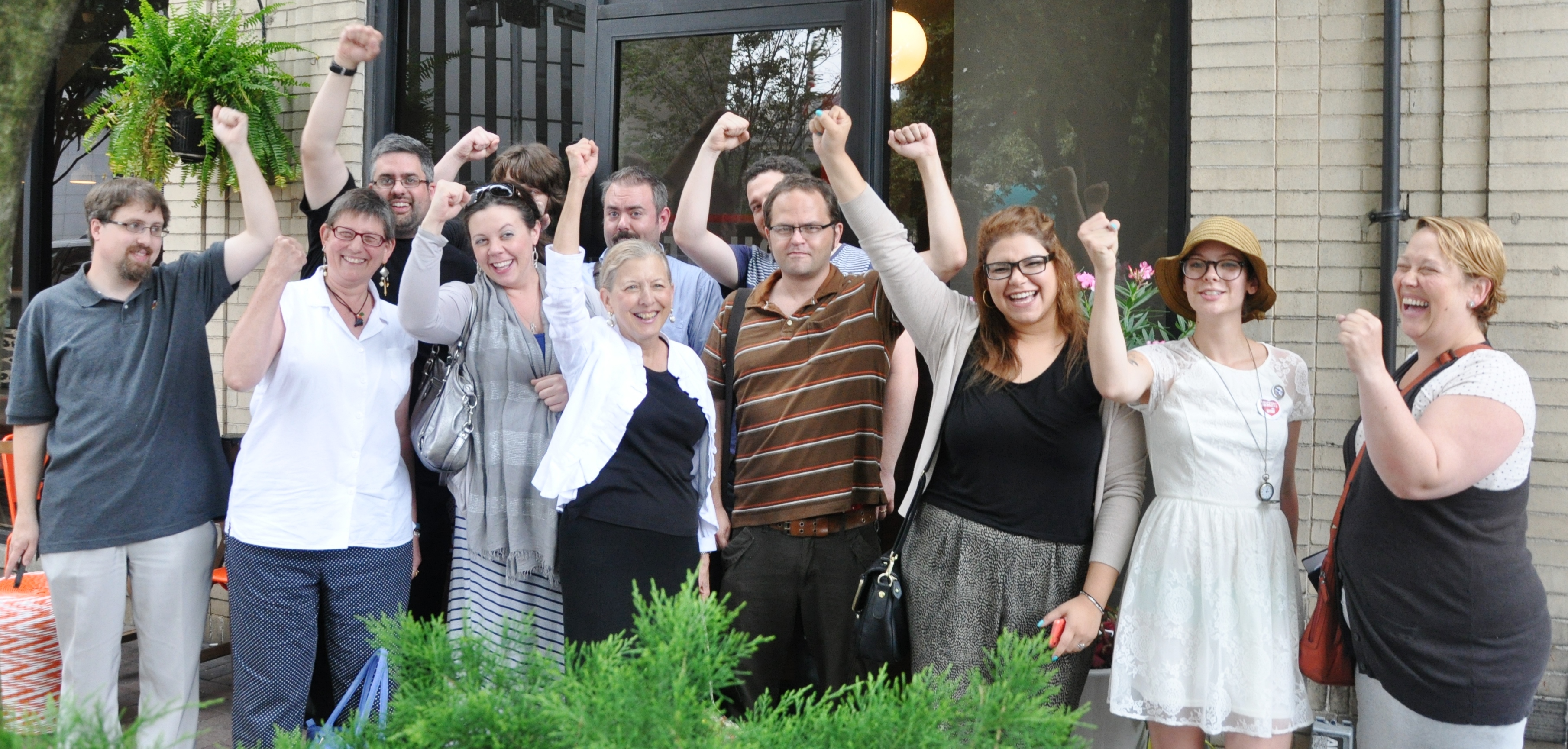Why I Voted "Yes"

On June 25, in the Pittsburgh offices of the National Labor Relations Board, officials counted 172 votes from Pont Park University adjunct professors in favor of collective bargaining through the United Steelworkers (USW). I was one of that number, and our votes carried with a more than 2:1 majority over the 79 “no” votes.
Like everyone, I’ve faced difficult decisions in my life; voting “yes” for unionization wasn’t one of them. I voted “yes” because I love my job teaching French and English courses at Point Park University in downtown Pittsburgh. I’ve been doing it for almost 20 years. Like most adjunct professors, I have the same qualifications as a full-time professor, and my students don’t know I’m adjunct unless I tell them. But also like most adjuncts, I make a small fraction of what full-time faculty make for doing the same work, and I have no job security and no benefits.
For many years, I believed it was a trade-off: I could do something I loved that gave me self-respect, or I could do something else and maybe get a respectable paycheck. Now I know that’s a false choice. I’m adjunct rather than full-time because I’m the victim of the union- and wage-busting practices in this country that go back decades. I’m part of a “contingent” work force, which means a work force that’s unprotected by most labor law and, of course, unprotected by a union. We adjuncts make up the majority (up to 75 percent in many institutions, including mine) of all university faculty in the United States. In the 1970s, it was full-time faculty who made up that percentage.
I’m an “independent contractor,” to use another euphemism for unprotected workers. My contracts are renewable, or not, term to term; they usually don’t arrive until just before I’m scheduled to teach, and they’re null and void anyway if enrollment is insufficient.
I’ve been told to my face by a faculty member who I regarded as a colleague, “Remember, we don’t guarantee you anything.” I’ve been asked to develop new courses for no pay beyond the $6,700 or so I make per semester (for three courses at approximately $2,200 per course per term) and then told, “Sorry! No need for the course after all.” Or, if I teach it once, I have no guarantee it will be mine again.
None of this treatment is peculiar to my situation or to my university. It’s the norm for adjuncts all over the country: No living wage, no job security, no health benefits, not even an office space in which to work and meet students.
Then in 2013, a few of us heard about the effort to unionize adjunct professors at one of the colleges that make up Duquesne University, about a mile away from Point Park. That effort became nationally known when an elderly adjunct professor died in extreme poverty for want of health care. The union election was called and won, but Duquesne, a Catholic university, is fighting the results based on “religious freedom,” although it recognizes other unions on campus.
Since adjuncts often teach at more than one institution to try to make a living wage, a couple of Duquesne adjuncts were also at Point Park, and they got the ball rolling there. It rolled very slowly at first: Adjuncts are isolated and fearful for their jobs. But we began to talk, one to one, then to one more. A few students became active in our behalf, realizing that our welfare impinged directly on their education. If rising tuitions (and they do rise and rise!) weren’t going to faculty salaries, and if we were working for less than $20,000 a year, where was that tuition money going? And how could a professor who had to race across town from school to school, piecing together a “career” out of two or three or even four adjunct jobs, possibly provide the quality of instruction and the individual attention that students needed and deserved?
Those of us who knew that unionization was the only route to change did encounter some hesitation from colleagues. Fear of employers often gets rechanneled into distrust of unions. American workers have been propagandized by a divide-and-conquer strategy for so long, and college professors have sometimes been resistant even to seeing themselves as workers. But ultimately the self-respect that we adjuncts so value in our professional lives, as well as our belief that what we do is important to our society and to the next generation of Americans, helped to overcome the fear. Point Park is now the first institution of higher learning in our area to have unionized the entire adjunct faculty.
Once we knew we were on the road to unionization, some faculty members asked those of us who were on the Volunteer Organizing Committee of the Adjunct Faculty Association of the United Steelworkers (AFA-USW), why we had sought out a union whose very name is associated with industrial workers. Shouldn’t we have chosen a teachers’ union? Here again, that core group of faculty members familiar with the Duquesne fight were able to reassure everyone that the USW was far more diversified than in the “old days” of steel and that organizers from the union were superbly well-versed in our particular needs.
Working with organizer Randa Ruge and with organizer-professors Robin Sowards and Clint Benjamin, along with help from organizer Maria Somma, was nothing less than inspiring. They led by making us lead, reminding us that this was to be our union, with our goals, our contract, our elected representatives. But their expertise was always in evidence. I salute and thank them and the entire USW for their leadership and support.


